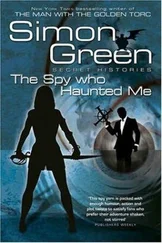Yvonne, in Bahrain, was relieved to see the story published ‘after three nail-biting weeks’. Feelings of relief did not last and she feared she would be arrested. She debated whether she should go to Jordan, or even into Iraq.
‘Anything,’ she says, ‘seemed preferable to being arrested.’
CHAPTER 4: Conscience Meets Inspector Tintin
The Observer said yesterday that the memo had been leaked to it ‘by British security sources who objected to being asked to aid the American operation’ … a 28-year-old woman employee at GCHQ was arrested.
– Jeevan Vasagar and Richard Norton-Taylor, Guardian
I’m pretty rubbish at telling lies, and I try to be an honest person. If I had continued to lie, I would have been dishonest, like them. I have to say that I’ve only ever followed my conscience. And it, my conscience, is such a nuisance.
– Katharine Gun, to the authors
KATHARINE’S NUISANCE OF a conscience would not let her sleep after telling government interrogators on Tuesday that she had read and immediately deleted Frank Koza’s message, that she had assumed it had nothing to do with her. The magnitude of the lie was too great, the sense of guilt too strong. Her conscience had made her physically ill, and she reached the only decision possible. After a fretful, sleepless night, and tortured indecision, she determined she would admit to her crime. All hopes of anonymity had evaporated.
On Wednesday morning, Yasar did not drive directly to GCHQ; instead, in silence, he drove aimlessly around the city, delaying the moment when he would leave his wife at the GCHQ gate. She sat at his left, exhausted, head tilted back against the seat, numbed. A tape of Turkish music played softly. There was an amazing sense of serenity in the car.
Wednesday morning was chilly but lovely. The rush hour, such as it was, had passed in this city, a uniquely inviting place resting peacefully on the western edge of the lush Cotswolds. In the distance are ancient forests and gentle hills, a verdant green that extends down to gardens throughout the city. In spite of a modern mall downtown, Cheltenham is typically picture-perfect English, with its elegant Georgian architecture and palpable aura of the past. Here, one can reach out and touch the Middle Ages, can marvel at historic Regency influence.
Although she was raised in Taiwan, Katharine is fiercely, loyally British. She never felt her nationality, her fealty to birthplace, more vibrantly than this day when she knew she was taking the risk of being called ‘traitor’.
Finally, reluctantly, Yasar pulled to a stop at the sprawling secret complex located in a suburban setting that seems so inappropriate. But then, that seems to be the way of some of the world’s most secret enterprises, settling themselves as they do in bucolic rural or suburban neighbourhoods. Even if the mission is markedly different, one expects a place more ominous; for example, more like Russia’s infamous Lubyanka, standing meanly in the heart of bustling Moscow.
Not yet ready for occupancy this Wednesday was GCHQ’s new ‘doughnut’, a circular answer to its five-sided American counterpart in Arlington, Virginia. The new facility is located in the open, where from a short distance away one can stop and gawk at the hub of the United Kingdom’s most secret business. This morning, during the drive around Cheltenham, Katharine was thinking that she would not be with her colleagues when it came time to move to the posh new building.
Yasar both knew and understood what his wife had decided, that Katharine had to do what she firmly believed was right, a belief consistent with Yasar’s own philosophy of the human experience. This, in spite of his having told her that ‘no one could prove anything’ if she did not confess. Those were throwaway words, which they both recognized as soon as they were spoken.
The goodbye kiss and cuddle were brief, and Katharine did not look back as the Metro drove away. She knew the scene at the gate would never be repeated.
No coffee, no cinnamon roll this morning. As she entered the office, Katharine, in obvious distress, caught the attention of her manager. Concerned that the young translator was ill, she took Katharine into a side office. With no preamble, with no excuse, Katharine said simply, ‘The leak was me. I did it.’ She burst into tears.
Visibly shocked, disbelieving at first, the woman said nothing but reached out to put an arm around Katharine’s shoulder. When Katharine calmed, her manager took her arm and led her directly to the Security Department, her touch gentle, her obvious concern comforting to the frightened younger woman.
The die was cast, and Katharine’s promising future evaporated as quickly as if it had been deleted from her computer screen. Zap. Gone. Permanently, irretrievably deleted. There would be no handy ‘undo’ or ‘restore’ options.
Questioning began around ten o’clock that morning, Katharine’s interrogators GCHQ security personnel. She was comforted by the presence of her manager, who never left her side. They sat circling a round table, questions and answers posed and responded to with quiet civility. Why? Who? When? And, of course, how? It was necessary to make certain that Katharine was indeed responsible for this egregious breach of the Official Secrets Act.
Two years earlier, on 4 January 2001, Katharine Teresa Harwood signed the GCHQ Statement of Written Particulars, required of all new intelligence officers, and she accepted the terms and conditions set out for her job as a Mandarin translator. It included the paragraph below:
34. OFFICIAL SECRETS ACT
GCHQ is one of the UK’s intelligence and security services. As an employee you will therefore be subject to the special provisions of Section 1 of the Official Secrets Act 1989. You are required to sign a document on joining and leaving the Department to show that you are aware of the provisions of this section and of the other provisions of the Official Secrets Act which also apply.
Essentially, the Official Secrets Act makes it a criminal offence for all members, or former members, of the security services to disclose official information about their work. The areas covered by the act include releasing information on defence, international relations, security service activities, foreign confidences, and information that might lead to a crime being committed. Katharine’s release of the Koza message fit neatly into the specifically named offences.
Thirteen years earlier, almost to the day, a newly revised OSA made not only secret service officers, like Katharine, but also journalists – like Martin, Ed, and Peter at the Observer – subject to prosecution if they disclosed information the British government considers damaging to the defence of the country or to its interests abroad.
Katharine’s manager escorted her to lunch, then returned with her to the Security Department. She was not left alone at any time. When the Metropolitan Police arrived, they gave Katharine the chilling news that Scotland Yard was coming to make a formal arrest.
‘It was then that it really hit me. I had never been in trouble with the law. I had only spoken to police to ask directions, or when I had things stolen from me. I’d always been the victim, not the criminal.’
At some point, her questioners asked Katharine if she wanted to call a lawyer. She answered that she knew of no one to call and was assured that a duty solicitor would be assigned to her in due course. When Scotland Yard officers arrived, Katharine Gun was arrested for violation of the Official Secrets Act, a serious crime with ominous possibilities of punishment. She was terrified.
Katharine speaks highly of the Scotland Yard officers who arrested and interrogated her, as she does of the Cheltenham ‘regular police’ who held and confined her. The men from the Yard were thorough but kind, one in particular, whom she calls ‘Detective Inspector Tintin’, after a cartoon French boy who adventures around the world. ‘He is a little blond boy with a sticky-uppy flick in his hair,’ Katharine says of him. Because of the serious nature of Katharine’s crime, Scotland Yard conducted all post-arrest interviews and investigations.
Читать дальше












